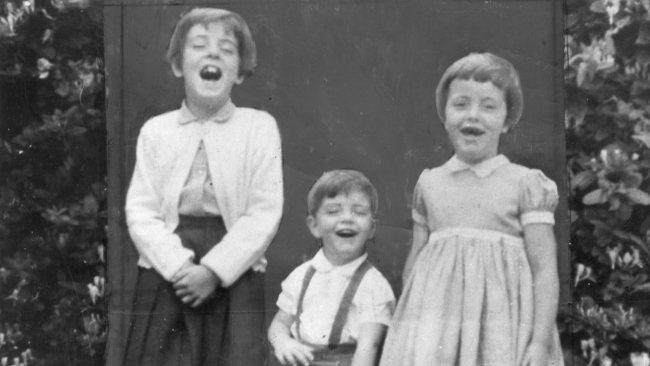Beaumont children mystery: Harry Phipps’ angry son says his father did not kill the children
WAYNE Phipps, the surviving son of Harry Phipps, says his father has been publicly tried and convicted of killing the Beaumont children despite no evidence of his involvement.
SA News
Don't miss out on the headlines from SA News. Followed categories will be added to My News.
- Police end dig having found no human remains
- Without a trace: Where did they go?
- Haydn Phipps’ now-disputed claims
- Gallery: Inside the lives of the Beaumont children
Read below: An alleged motive of revenge, and analysis
THE surviving son of businessman Harry Phipps says his father is innocent and was publicly tried and convicted of killing the Beaumont children despite no evidence of his involvement.
And SA’s most senior homicide detective says he had “concerns about the validity of some of the allegations” made about Mr Phipps.
Breaking his silence on the astonishing claims that have tarnished his father’s name, Wayne Phipps believes his mentally ill older brother, Haydn, fabricated the allegations implicating his father in the abductions and his own alleged abuse.
“This is wrong. It’s hurting those who I care about and the memory of those who I cared about. We loved Harry and believe in his innocence,” Wayne told the Sunday Mail.
He has revealed serious factual flaws in Haydn’s uncorroborated allegations that has cast serious doubt on their validity.
His wife, Eileen, has also revealed it was Haydn’s wife, Angela, who first raised allegations about the Beaumonts’ abduction and Haydn’s alleged sexual abuse at the hands of his father – almost a decade before they were raised with SA Police.
SA was thrust into the national spotlight three weeks ago when police conducted a second excavation at the New Castalloy factory at North Plympton searching for the remains of the Beaumont children – Jane, 9, Arnna, 7, and Grant, 4.
The first, in 2013, followed claims made in a book about the 1966 abductions, which implicated Harry, and subsequent suggestions made by Channel 7 that a grave may have been dug on his instructions at Castalloy – a company he once owned.
The first excavation found nothing. The second excavation, on January 19, followed a seismic examination of a nearby site at the factory – organised by Channel 7 – that found an “anomaly” under the surface. A waste pit that contained animal bones and refuse was found.
There is no evidence connecting the site to the Beaumont children.
While detectives believe recollections by two men about digging a hole on the property in January 1966 may be correct, it appears they may have simply dug a refuse pit.
In 2013, Harry was incorrectly named as a suspect in the Beaumonts’ abduction following the publication of a book entitled The Satin Man.
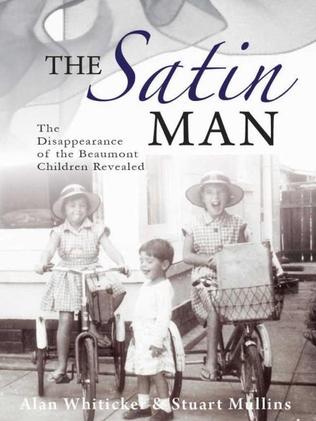
Although pseudonyms were used in the book, the characters were Harry, his family and friends.
Among the informants for the book were Haydn and Angela, and another disgruntled relative – who was not left any money following Harry’s death in 2004.
In the book and in subsequent TV current affairs segments, it was alleged Haydn saw the Beaumont children at the family home at Glenelg on January 26, 1966. His statements – made to a former fraud detective-turned-private investigator – remain uncorroborated.
Police became aware of the allegations in 2007 and despite investigations Major Crime detectives have found no evidence to corroborate Haydn’s claims or any other evidence to link Harry to the abductions.
Detective Superintendent Des Bray, head of Major Crime, said the investigation into the 2007 allegations made against Harry had been fully reviewed in late 2017.
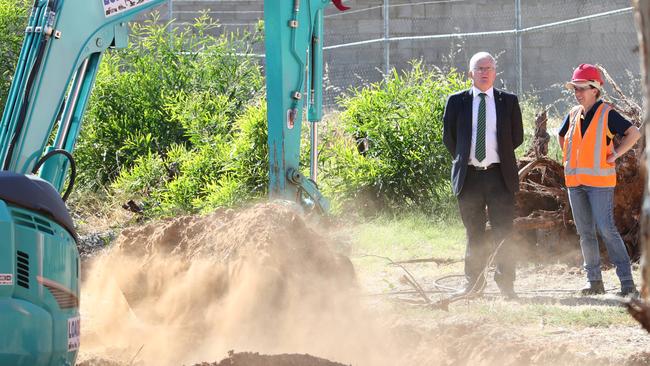
“Police have some outstanding inquiries to complete in relation to Mr Phipps; however, at this time, there is no proof that he had anything to do with the disappearance of the Beaumont children,” he said.
“I can say I have concerns about the validity of some of the allegations that have been made in connection with Mr Phipps.”
Wayne, 63, and wife Eileen, 68, have detailed crucial errors in Haydn’s allegations concerning events on the day he claims to have seen the children with his father.
He has also cast serious doubt on claims by Haydn that his father sexually abused him. Wayne said the past four years – especially the past three weeks – had left his family distraught and concerned that the public have now been left with the view that his father was responsible for the abductions.
“I told Major Crime the truth about my family when they first contacted me 11 years ago regarding claims against my father, Harry, by my muddled older brother, Haydn,” he said.
“Since then I’ve had regular and open contact with Major Crime. My brother, Haydn, is dead. He was mentally deranged and needed help.
“Instead of giving support, some people took advantage of him and my dead father for their own personal gain or revenge.
“When The Satin Man was released, I thought it would die out. Someone would tell the truth. Many of those who remember facts are either dead or too old to want this rubbish in their lives.”
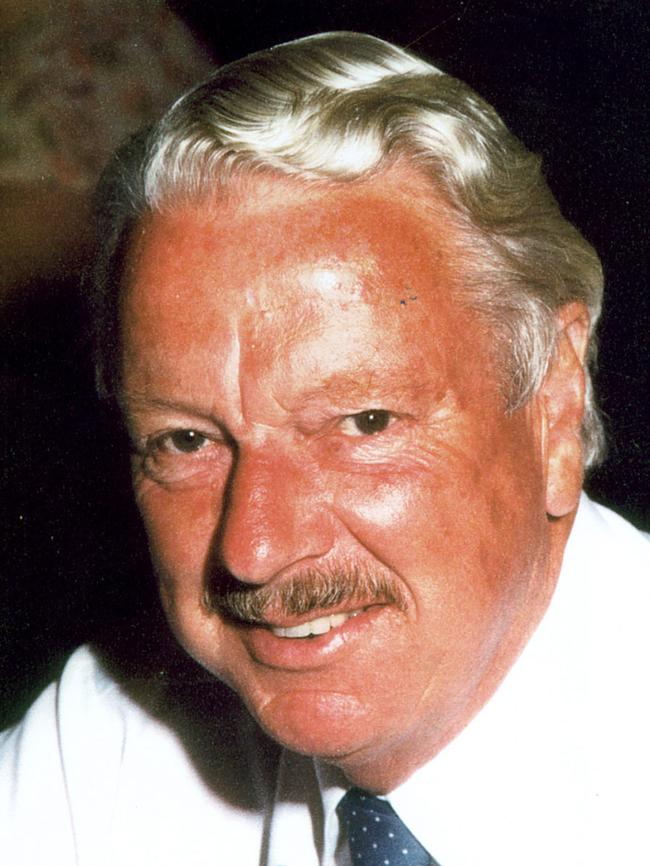
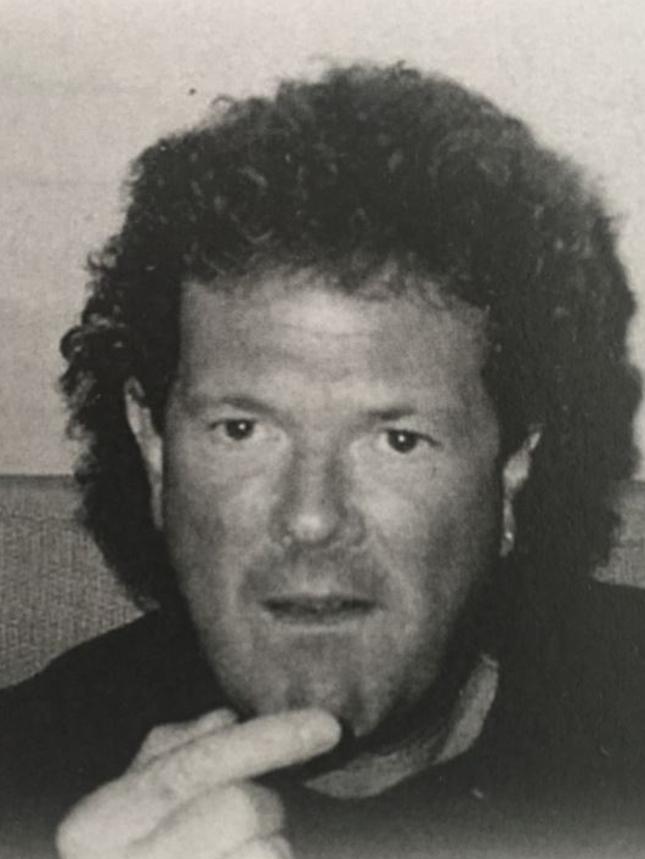
Wayne said following the release of the book and the nature of the allegations it contained, his family had sought legal advice but were advised defamation laws did not apply to a dead person and they had no recourse – despite the negative impact it had on their own lives.
“This is too convenient for authors who have based the book on one mistruth after another. This book is based on fiction and it is hurting my father’s memory, my mother’s memory, family, friends and Castalloy employees,” he said.
Among what he claims are mistruths, Wayne cited crucial details given by his brother concerning his alleged sighting of the Beaumont children with his father the day they vanished.
“It has been written that on this day Haydn said that he worked at the Glenelg Ten Pin Bowling Alley and came home around midday,” he said.
“He further stated that our mother was out, playing tennis, and on return from work he went into his cubby. It was from this cubby that Haydn supposedly saw the Beaumont children.
“The true facts are that our mother only played tennis on Saturdays as many of the people she played with worked during the week and there was no holiday for Australia Day in 1966.
“The book also says Haydn came home from working at the bowling alley. Haydn never worked at the Glenelg bowling alley and there was no cubby house as mentioned, nor a treehouse. These are examples of the delusional statements made.”
In his interview with the private investigator, conducted in 2008, Haydn also said he was smoking with mates in the cubby, another claim Wayne disputes. He said Haydn “hated” cigarettes and never smoked as a teenager.
Wayne also cast serious doubt on allegations made by Haydn, who died in 2016, that his father sexually abused him.
“Haydn was 4½ years older than me. I shared a bedroom with Haydn until he got married at age 21 ,” he said.
“My father never touched me or my friends, and never Haydn or his friends. If Haydn had been abused, he would have told me, he would have told his mother – he was a blabbermouth.”
But even more disturbingly, Wayne said Haydn’s actions in relation to the care of his own son, Nicholas, cast even more doubt on the truth of his abuse allegations.
“Haydn asked my father and mother to raise his son, Nicholas, and Nick lived with them for many years,” Wayne said. “Why would he ask someone he believed to be a murdering paedophile to look after his son?”
Nicholas lived with Harry and his then-wife Olga until he was around 18. He has made no allegations about Harry.
The Satin Man researcher, Stuart Mullins, yesterday said he stood by the “content of the book 100 per cent” and said Angela had told him in 2006 of “her suspicions” but did not go to the police because she feared being labelled as “another nutter”.
“That is the way she felt at that time because the information she had at that time wasn’t concrete,” he said. “What she said I had to follow up.”
When asked if he felt Harry had been treated unfairly, he said: “Absolutely not. Everything in the book we stand by 100 per cent.”
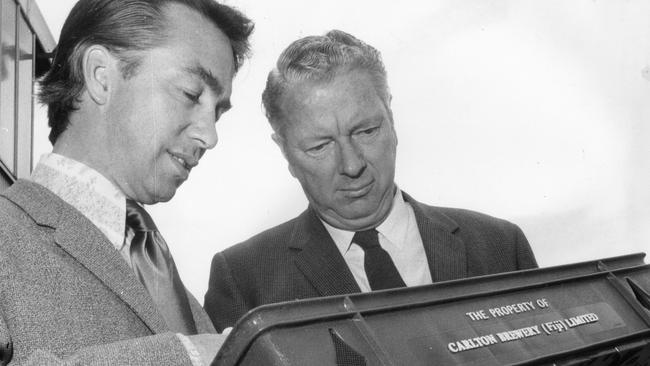
REVENGE ‘WAS MOTIVE FOR BELATED ACCUSATION’
POLICE were not told of an allegation linking Harry Phipps to the Beaumont abductions until almost a decade after it was first raised, it has been revealed.
Wayne Phipps’ wife, Eileen, has told the Sunday Mail the suggestion Harry “was capable of” abducting the Beaumont children was first raised with her in 1999.
The suggestion was made by Haydn Phipps’ wife, Angela, in a conversation with her while she was staying with them in Queensland.
Detectives were not made aware of the allegations until early 2007. They conducted extensive investigations into the claim but uncovered no evidence to substantiate it.
Eileen said she could vividly recall the conversation while she was staying with Haydn and Angela, and Wayne was in hospital.
The conversation is detailed in a lengthy document Eileen has provided to Major Crime investigators in response to the claims made by Haydn and in The Satin Man book.
“(Angela and Haydn) were both obsessed with Harry and his money, particularly Angela, and it came up in conversation with them most days. It always came back to Harry and his money,” Eileen said.
“Angela complained throughout the time I was there about the paucity of money Harry was providing to her and Haydn.
“We were sitting around the table and she asked me if I thought Harry could be responsible for the Beaumont children disappearance. I was stunned.
“I asked her why she said it and she just said ‘Because I think he’s capable of it and he lives so close’, and that was it. I believe that was the genesis of all of this.”
Eileen said the conversation was the first time she had heard the suggestion, but realised in February, 2007, that police had been made aware of the allegations. Then Major Crime case officer Detective Sergeant Brian Swan visited Eileen’s home to speak to her and Wayne about
the claims.
“I think the catalyst for them saying it publicly was when Harry died they could then get away with it,” Eileen said.
“Detective Swan said he wanted to speak with Wayne and said there had been claims about Harry and the Beaumont children. I said to him ‘This has come from Queensland, hasn’t it?’ and he looked surprised.
“I said it’s come from Angela and Haydn, and I told him what had been said to me in 1999 by Angela.”
Angela – who died last year – and Haydn married in the mid-’90s. She was his psychiatric nurse while he was being treated for mental illness.
Eileen said Angela “constantly” complained to her about being broke.
“This is what this is all about. Haydn told her she was going to be a very rich woman, that she was going to get a lot of money, which she didn’t get,” Eileen said.
“In Harry’s will, he left a lot of money to a lot of people, but not to her.”
Another close relative of Harry’s, who asked not to be identified, has corroborated Eileen’s statements, saying she had seen Angela asking Harry for money and had a copy of his will detailing the beneficiaries.
Besides recalling the 1999 conversation, Eileen also detailed to police
factual errors concerning characters and events in
the book.
“I believe the material for this book was provided by Angela as revenge against a man she saw as owing it to her to support her in the way in which Haydn had told her she would be supported,” she said.
“Angela has achieved her goal. Harry can’t defend himself. These claims will stain his memory forever.
“The book suggests SA Police is not interested in the case. It is ridiculous to suggest this. Solving this crime would have to give SA Police great satisfaction.”
INFORMATION IS NOT EVIDENCE
Analysis - Nigel Hunt
IT is a crying shame that each of the three key players in the latest chapter of the Beaumont children disappearance are no longer alive.
Almost certainly, if Harry Phipps were around today, the allegations linking him to their abduction would not have entered the public domain.
If they had, those who made them would have found themselves in the Supreme Court on the wrong end of a defamation lawsuit. And Harry would have won, simply because there is no evidence to substantiate the claims.
Harry would also be in a position to answer the questions posed by Major Crime detectives investigating the allegations made by his troubled eldest son, Haydn, and his wife, Angela.
He would no doubt be asked if he abducted the children and just why he asked two boys to dig a large hole at the Castalloy factory.
He would also have a chance to either confirm or reject Haydn’s allegation that he sexually abused him.
Haydn and Angela would certainly be asked why they waited until after Harry died in 2004 before making the allegations public.
They also would be asked if they were motivated by money, namely the lack of it coming their way from Harry in his latter years and then from his estate.
The answers to these questions would go a long way to determining the value of the information in helping solve the Beaumont children’s disappearance.
Information and evidence are two very different things. Just because someone says something does not make it fact. Information can only be turned into evidence when it is substantiated and corroborated, preferably by multiple sources.
If the information cannot be substantiated and corroborated, it should not be put into the public domain – particularly when it impugns the integrity of public standing of the target.
Perhaps the saddest aspect of this latest frenzy has been the effect on the elderly parents of the three missing Beaumont children – Nancy and Jim Beaumont.
It is impossible to measure the torment they have suffered for the past 52 years.
Every year they endure the inevitable anniversary rehash, sporadic false leads and outright media beat-ups.
Remember, last year the supposed “breakthrough’’ in the case was a claim by the son of a convicted paedophile – who just happened to have passed away – that his father was responsible for killing the children.
He claimed his father buried the children in an old well on Yorke Peninsula. Thankfully, after examining the claims, police decided not to excavate that site.
Surely the grieving parents deserve better than this in their twilight years.

